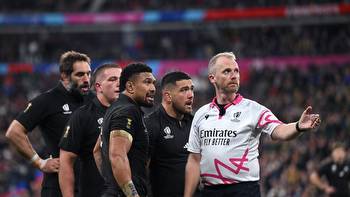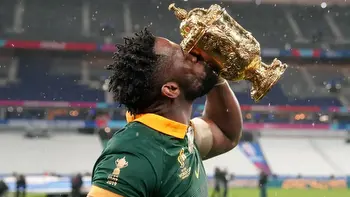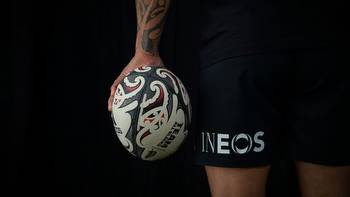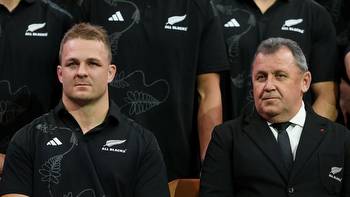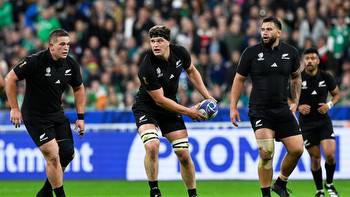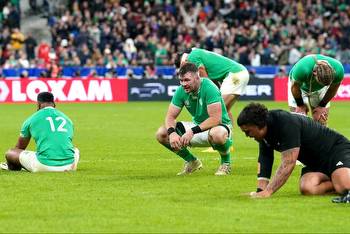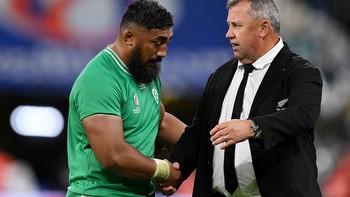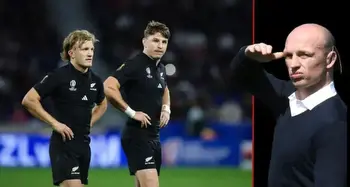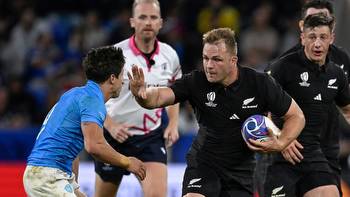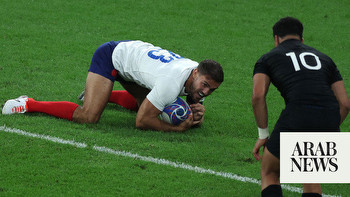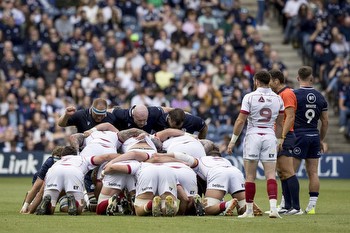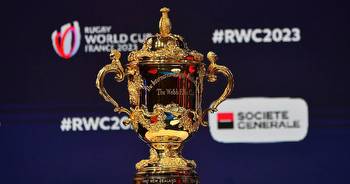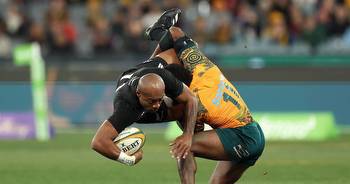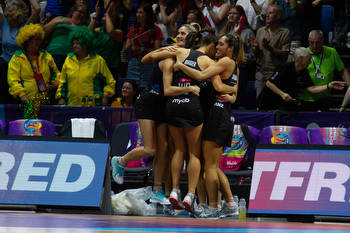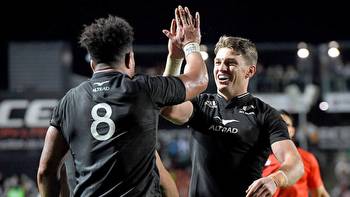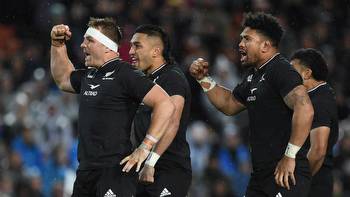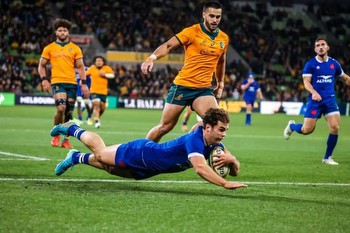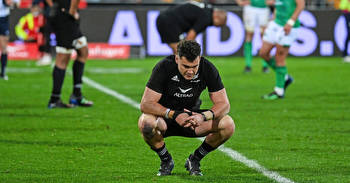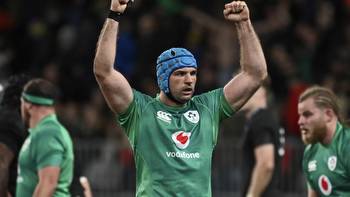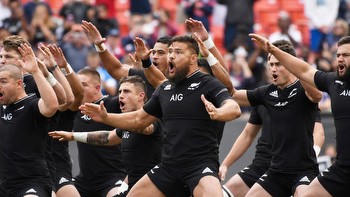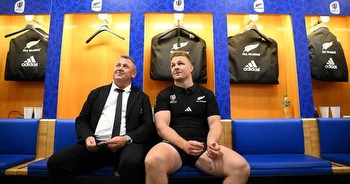Rugby World Cup 2023: All Blacks and New Zealand have lost their way in recent years
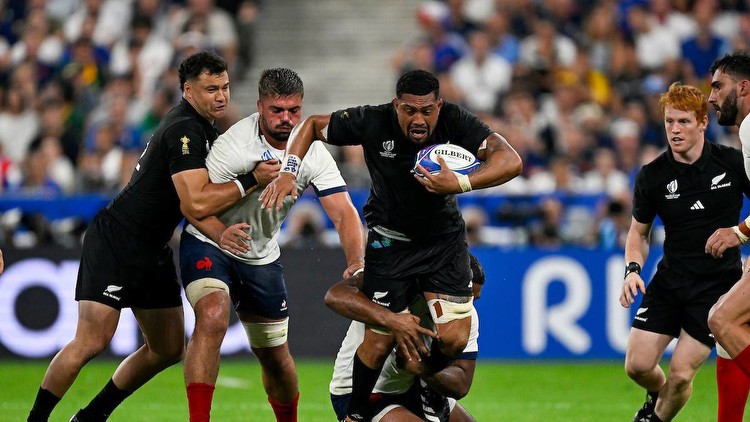
New Zealand, as will be noted many times in the lead-up to the election, is an increasingly divided country - a tiny cohort of super-rich types becoming richer, whilethe middle class shrinks, some even joining the growing underclass of disenfranchised and disconnected.
The political analysts all talk of a divergent country, one which they are starting to not recognise, nor understand where it may be heading.
One that doesn’t feel like the nation they recall from their youth or even the last years before Covid-19.
The general sense is that post-colonial New Zealand has lost the essence of itself. It is confused, angry and uncertain about its place in the world.
Some may disagree, but for decades, the All Blacks have been the North Star for the country: the unification point that transcends wealth, upbringing and education.
It used to be that everyone saw something of themselves in the All Blacks - that they epitomised the collective values on which New Zealanders perceived their country was built.
And what were those values? Hard work, discipline, perseverance, resilience, innovation and determination.
The All Blacks, so the mythology built, were the embodiment of a country that saw itself as unified and egalitarian: an envy-of-the-world kind of place where, rich or poor, everyone was working with one another, for one another.
As a rugby team, it made the All Blacks formidable. The old-world heavyweights didn’t have this sort of unification or common purpose.
There were cracks in their identity. England didn’t seem to want the working classes to get anywhere near the game.
The French were wedded to this idea that they had to play up to the Gallic stereotype of being brilliant but irrational - seemingly determined to showcase their propensity for brain explosions.
The Celts weren’t driven by clear ideas about who they were, but a common hatred of England.
Certainly, France, based on their opening performance, have worked out who they are and what it means to be French.
The Irish have rocketed to number one in the world, displaying the same sort of innovation and confidence that shot their economy into being one of Europe’s strongest.
But the All Blacks’ 27-13 loss in the opening game of the World Cup has possibly confirmed what many have suspected for a few years now, which is that the national team has evolved to represent modern New Zealand.
Just as New Zealand can no longer define or recognise itself ideologically, so too have the All Blacks come to represent this uncertainty, their performance in Paris bearing all the tell-tale hallmarks of a country that’s divided, easily distracted and still not sure why there were people wearing tinfoil hats outside Parliament two years ago, setting fire to things and denouncing medical science as quackery.
There’s no sense now of the All Blacks being the world’s most innovative team.
France and Ireland have surpassed them and in a different sort of way, so too have South Africa, even though they continue to play around with one singular theme of muscularity.
The resilience that used to define the All Blacks has been eroded. Physically, the All Blacks played to the death in Paris. They threw their heart and soul into the game. But resilience is more nuanced than that and the old All Blacks, the old New Zealand perhaps, had a capacity to adapt and evolve to deal with what they were encountering.
That was what they saw as resilience - having the street smarts to deliver real-time solutions to real-time problems. Back in the day, they called it a No 8 wire mentality - a quintessential Kiwi resourcefulness to deny the odds. And maybe the second half of the opening World Cup match was the most illustrative proof of the demise of both New Zealand and the All Blacks.
The All Blacks didn’t have the leaders they needed in a crisis. They didn’t have, in the hot cauldron of Stade de France, the cold, steely decision-making of a Richie McCaw or Buck Shelford - and might this perhaps be a symptom of New Zealand too at the current time?
The political landscape, no matter through what lens it is viewed, is currently devoid of great leaders.
Two forgettable blokes called Chris, the sorts who would wear a wacky tie on dress-down Friday, seem to be in a race to take New Zealand to the bottom of the OECD in almost every measure.
Maybe there is a parallel there, too. New Zealand is losing its way in numeracy and literacy - the basic building blocks of a high-functioning economy - just as the All Blacks showed on Friday night that they too have seen their standards fall in the basic art of pass and catch under pressure.
And, admittedly in what may be the longest of longbows to draw, could the way the All Blacks so readily and easily descend into an ill-disciplined response when they encounter adversity, be seen as a metaphor for New Zealand’s increasingly volatile and violent streets?
No one ever imagined that central Auckland would fall victim to gun crime the way it has, or that we would have 14-year-olds calling themselves career ram raiders.
Covid threw the country off its axis and recession is biting, but while Kiwis got through enormous crises such as the Great Depression and World War II with hard work, determination and an indefatigable spirit, the current preferred method is to resort to lawlessness and smash a car through the dairy for a box of fags.
There was a hint of this culture about the All Blacks when France put the squeeze on them midway through the second half: it wasn’t that they played with a reckless disregard for the rules, but they also don’t seem to have a deep enough respect for them when things aren’t going their way.
Coincidentally, or perhaps not, the All Blacks will play their quarter-final (and yes they will get there) the day after the country holds its general election.
Both events, it could be argued, present possibilities for the All Blacks and the country to change their current trajectories: for transition to begin in one and drive it through to the other.
Looking at the cohort of politicians vying for power and the inevitability that once again the country will vote but Winston Peters will decide, the All Blacks are shaping as the more likely catalyst.
They played well in this year’s Rugby Championship and looked smart, organised and disciplined, but the worry is that the faultline sits well below the surface, and is only exposed in those majorly intense, do-or-die encounters.
Certainly, the last 20 minutes in Paris were so patchy and ill-disciplined as to provide only the most tentative and fragile confidence that the All Blacks can rebuild themselves as the country’s North Star, and that both team and country can redefine themselves.

